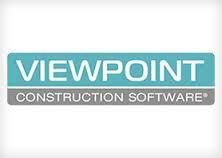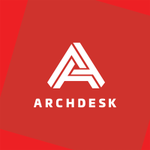What Is Residential Construction Estimating Software?
Residential construction estimate software is a tool that helps contractors, builders, and homeowners precisely assess the expenses of a home improvement project. It usually incorporates elements like project management, cost monitoring, and material estimation to provide a thorough and complete breakdown of the project's spending.
One of the primary advantages of using home building estimating software is the ability to save time and minimize errors during the estimation process. The software automates calculations, removing the need for manual calculations and minimizing human error. This enables contractors to generate more precise and detailed estimates, resulting in improved budget planning and a more efficient project.
Furthermore, home building estimate software frequently incorporates project management tools that enable users to keep track of activities, deadlines, and budgets in one place. This helps to keep the project on pace and within budget. It also facilitates collaboration among team members and ensures that everyone is working towards the same objective. Furthermore, many home building estimating software alternatives provide adjustable capabilities that allow you to tailor estimates to the exact needs of your project.
This may include the option to add labor expenses, markup percentages, and varying material pricing. This versatility enables users to design estimates that are specific to their project, ensuring the most accurate cost projection. When considering purchasing home building estimating software, thoroughly compare the features and capabilities of various solutions. To ensure a flawless experience, look for user-friendly interfaces, customization possibilities, project management tools, and interaction with other software packages.
What Are The Recent Trends In Residential Construction Estimating Software?
In recent years, the construction industry has seen a substantial increase in the usage of technology, including the implementation of residential building estimating software. This program has transformed the way contractors and builders manage their estimates, resulting in increased accuracy, efficiency, and cost savings.
Let's explore, we'll look at the most recent trends in home construction estimating software that you should consider before making a purchase.
1. Cloud-Based Solutions: One of the most significant changes in residential building estimating software is the transition to cloud-based solutions. This enables users to use the software from any device with an internet connection, giving them greater flexibility and convenience. It also enables real-time cooperation amongst teams, which reduces the likelihood of errors and delays.
2. Mobile Compatibility: Given the growing use of smartphones and tablets on building sites, it's no surprise that residential construction estimating software has grown more mobile-friendly. This trend enables contractors to view and amend their estimates on-the-go, eliminating the need for paper and expediting the estimating process.
3. BIM Integration: Building Information Modeling (BIM) has emerged as a vital tool in the construction industry, and many estimating software packages now include BIM integration. Contractors may now take data straight from the BIM model and include it into their estimates, resulting in a more precise and complete estimation process.
4. AI And Machine Learning: Another key innovation in residential building estimating software is the incorporation of AI and machine learning. This system can examine previous data and project timeframes to create more accurate estimates and anticipate potential problems during development.
5. Cost Database Integration: Many estimating software now integrates with cost databases, allowing contractors to get up-to-date material and labor costs for their area. This trend can help contractors save time and effort when researching and revising their price, resulting in more accurate quotes.
6. Configurable Templates: To meet the unique needs of different contractors, many estimating software now includes configurable templates. This allows users to design their own templates or alter current ones to meet their specific project needs.
Keeping these recent developments in mind, it is critical to determine which features and capabilities are appropriate for your specific demands and budget when choosing residential building estimating software. With the appropriate tools, you can expedite your estimating process while increasing the overall productivity and profitability of your construction projects.
Benefits Of Using Residential Construction Estimating Software
home construction estimating software is an effective tool for simplifying and streamlining the process of generating accurate cost estimates for home construction projects. This program is specifically created for the construction sector, and it includes a variety of features and functionality to help contractors and builders save time, enhance accuracy, and boost productivity.
Here are some of the main advantages of using home building estimate software.
1. Removes Guesswork: Manual estimation always leaves room for inaccuracy. However, with construction estimating software, all calculations are performed automatically, eliminating the possibility of human error. This leads to more precise estimates and allows contractors to avoid costly mistakes.
2. Saves Time: Manually calculating estimates can be time-consuming, especially for large and complex projects. Residential building estimating software speeds up the estimation process by automating time-consuming procedures like material cost computations and quantity takeoffs. This frees up contractors' time to work on other valuable duties.
3. Increases Efficiency: Using estimating software saves time while also improving overall efficiency. Pre-built templates, intelligent cost databases, and customized reports all help to speed up and streamline the estimation process.
4. Increases Transparency: Residential building estimating software provides a clear and consolidated platform for all project-related data. This encourages collaboration and reduces the need for back-and-forth communication among stakeholders, resulting in smarter decisions and a more organized workflow.
5. Facilitates More Accurate Bidding: Bidding on projects necessitates a thorough examination of all costs involved. Construction estimating software enables contractors to generate thorough estimates that accurately reflect all project expenses, giving them a competitive advantage and increasing their chances of winning bids.
6. Provides Scalability: As your firm expands, so will the complexity of your construction projects. Residential construction estimating software is flexible and adaptable to projects of all sizes and complexities, making it a long-term investment for your company.
Important Factors To Consider While Purchasing Residential Construction Estimating Software?
When it comes to acquiring residential construction estimating software, buyers should examine several key factors to guarantee they are making the best investment for their company. From the software's features and capabilities to its usability and compatibility, each factor contributes significantly to its efficacy and capacity to satisfy your specific requirements.
To make an informed decision, consider the following crucial considerations while assessing various software options.
1. Features And Capabilities: The first and most important consideration when selecting home building estimating software is its features and capabilities. The program should have all of the necessary capabilities, such as cost estimation, takeoff, project management, and scheduling. It should also include advanced features like as automation, connectivity with other software, and customized templates to save time and improve efficiency.
2. User-Friendly Interface: The software's interface should be simple to use and understand. Complicated and cluttered interfaces might make it difficult to utilize the software efficiently, resulting in wasted time and resources. Look for software with a simple and intuitive layout, making it easier for all team members to use and collaborate.
3. Compatibility: Before making a purchase choice, confirm that the software is compatible with your current gear and tools. If the program is incompatible, you may experience technical difficulties and disruptions, reducing productivity and causing project delays.
4. Training And Support: Training and support are critical considerations when purchasing any program. Look for software vendors who give thorough training programs and support services to guarantee that your staff can fully utilize the software. It's also a good idea to examine the availability and responsiveness of their customer service personnel.
5. Pricing: The pricing of the software is another important issue to consider. To get the most out of your money, you must strike a balance between functionality and cost. Consider recurring costs, such as annual subscriptions or maintenance fees, when calculating the software's long-term cost.
6. Industry-Specific Solutions: Residential construction estimating software should provide industry-specific solutions to meet the unique needs of the construction sector. Look for software created exclusively for residential construction projects to verify that it fits all of your project requirements.
7. User Reviews And Ratings: Finally, before making a purchasing decision, look into user reviews and ratings for the software you're considering. These can provide useful information on the software's real-world performance and user satisfaction.
Look for user reviews from the construction industry to obtain a better grasp of how the program functions in real-world settings. When comparing different home construction estimating software solutions, keep these crucial elements in mind to make an informed decision and select the best software for your individual needs. To achieve optimal efficiency and profitability, select features and capabilities that are relevant to your business needs.
What Are The Key Features To Look For In Residential Construction Estimating Software?
When it comes to selecting the best Residential Construction Estimating Software, buyers should check for a few important aspects to ensure that they are making an informed choice.
These features include the following:
1. Cost Estimation Capabilities: The primary goal of construction estimating software is to assist users in effectively predicting the cost of a residential construction project. Look for software that includes advanced cost estimation features, such as material cost databases, labor cost tracking, and the flexibility to tailor costs to certain markets.
2. Project Management Tools: Construction projects include many moving pieces and duties that must be controlled. Look for project management software that includes features like scheduling, task tracking, and team collaboration to help you keep your project organized and on schedule.
3. Material Takeoff Capabilities: A material takeoff is a comprehensive list of all materials required for a building project. Look for software that has digital takeoff capabilities, which allow you to quickly and correctly determine material quantities and costs.
4. Integration With Other Software: Your construction estimating software should be able to work with other programs you employ, such as accounting or project management software. This enables for more efficient data sharing while eliminating the need for human data entry.
5. Adjustable Templates: To reduce time and enhance accuracy, your program should include adjustable templates for typical project types like single-family homes and multi-unit structures. This enables for quick and easy project preparation while also ensuring consistency in your estimations.
6. Mobile Access: Look for software that has a mobile app. This can be beneficial for on-site visits, allowing you to swiftly adjust your estimations while staying in touch with your team.
7. Accuracy And Precision: In residential building, even little inaccuracies in cost estimation can have a significant impact. Look for software that does accurate and precise calculations based on industry standards and can account for variables such as inflation and labor costs.
8. Customer Support: As with any product, it's critical to have dependable customer assistance available if you run into any problems or have inquiries. Look for software that provides 24-hour customer assistance via numerous channels, including phone, email, and live chat.
Why Do Businesses Need Residential Construction Estimating Software?
Residential building estimate software is a valuable resource for construction companies. As a buyer, you need to understand why this product is so critical to your firm. Residential construction estimating software simplifies and automates the process of generating precise and thorough cost estimates for construction projects. These estimates are the backbone of any construction project, and having the correct tools in place may significantly improve your company's success and profitability.
First and foremost, home construction estimating software enables firms to save time and enhance accuracy. Manual cost estimation can be time-consuming and error-prone, particularly on big and complex projects. Businesses can use software to make estimates quickly and easily, reducing the time required for this activity. Furthermore, these software systems employ powerful algorithms and databases to ensure precise and consistent estimates, lowering the likelihood of costly errors and rework.
In addition to time and accuracy, home building estimate software can assist firms increase productivity. By automating the estimation process, all essential data and computations are saved in a single spot, making it simple to access and change information as the project advances. This removes the need for numerous versions of estimates and lowers the danger of information loss or misplacement.
Furthermore, software applications frequently contain functions like project management, scheduling, and budget tracking to help streamline operations and increase productivity. Another key feature of construction estimating software is the ability to generate thorough, configurable reports. These reports not only assist firms keep track of project expenditures, but they also provide useful information for future initiatives. Businesses can enhance accuracy and profitability by examining data from previous projects and adjusting their estimate approach over time.
How Much Time Is Required To Implement Residential Construction Estimating Software?
The time required to install residential building estimating software varies depending on several factors. However, it may take between 4 and 12 weeks to properly incorporate and integrate the software into your building business. The first stage in the implementation process is to understand your company's needs and goals. Meetings with important stakeholders, such as project managers and estimators, may be required to identify the specific features and functionalities that the program should have. After selecting the program, the implementation step begins.
This could include installation, modification, and training. The length of this phase varies according to the complexity of the software and the size of your company. For example, a smaller corporation with fewer employees may be able to complete this phase more quickly than a larger company with many sites and a larger workforce. Another critical part of implementation is data migration. This entails incorporating current data, such as project estimates and material costs, into the software.
The time necessary for this stage will be determined by the amount of data to be transferred and the software's interoperability with your existing data systems. Even after the software has been fully established and all employees have been instructed on how to use it, your team may experience a learning curve as they acclimate to the new system. This could take a few weeks or months, depending on your employees' comfort level and experience with technology.
It is crucial to highlight that, while the implementation process may appear time-consuming, it is a necessary investment in the long-term success and efficiency of your construction company. With adequate planning and a focused team, the time necessary for installation can be reduced, and you can begin reaping the benefits of residential construction estimate software quickly.
What Is The Level Of Customization Available In Residential Construction Estimating Software?
Residential building estimating software allows for numerous levels of customization to match the unique demands and requirements of each user. From basic templates to extensive capabilities, these software packages provide a high level of customizing to ease the estimation process and improve accuracy. One of the most important configurable features of residential construction estimating software is the ability to build and save templates for various sorts of projects.
This enables users to quickly access and edit pre-set templates for common building projects, saving time and improving efficiency. Users can also personalize their software by entering their specific material and labor expenses. This ensures accurate and up-to-date estimates while also giving a tailored database for future usage. Another important feature of customisation is the ability to change the software's settings and preferences.
This contains elements like units and currencies, tax rates, and margins, which enable customers to personalize the software to their own geographic region and business operations. Furthermore, several home building estimating software applications integrate with industry-standard software and equipment. This enables seamless data transfer and the flexibility to import or export data for additional customization or analysis.
Some complex software allows you to add or develop unique formulas, equations, and calculations to satisfy specific project requirements. This level of customisation enables a more extensive and precise estimation process, tailored to the specific needs of each project.
Which Industries Can Benefit The Most From Residential Construction Estimating Software?
Residential building estimate software has emerged as a vital tool for construction professionals. With its potential to shorten the estimate process and improve accuracy, it has become a useful asset in a variety of businesses. However, certain industries may profit more from this software than others.
1. Construction Companies: It goes without saying that residential construction estimating software is most commonly used by construction companies. They may use this program to develop precise project estimates, including material and labor expenses, which will help them stay on budget and on schedule. It also enables easy cooperation among team members and delivers real-time information, assuring efficiency and productivity.
2. Architects And Designers: Residential building estimate software can be quite beneficial to architects and designers. They can use it to provide precise cost estimates for their designs, making it easier to communicate with clients and keep the project on budget. This program also allows them to follow changes and revise estimations as needed, saving time and effort.
3. Real Estate Developers: Real estate developers can benefit significantly from residential construction estimate software. It assists them in estimating costs for possible development projects, helping them to choose the most profitable opportunities. This program allows them to track spending and manage budgets for ongoing projects, assuring optimal profitability.
4. Home Builders: Residential building estimate software is an invaluable tool for home builders. It enables them to generate precise estimates for particular homes while taking into account specific design needs and material costs. They can also utilize this software to manage subcontractors and track spending, resulting in a smoother construction process.
5. Remodeling Contractors: Residential construction estimating software is a must-have tool for remodeling contractors who want to provide precise and detailed quotes to their clients. It enables them to account for renovation costs, select the best materials, and offer clear pricing to their clients. This software also simplifies the bidding process, giving them a competitive edge over rival contractors.
Conclusion
After conducting extensive research and assessing numerous residential construction estimating software choices, it is evident that investing in dependable and effective estimating software is critical for any home construction project. These solutions provide a variety of benefits, including precise cost estimation, easier project management, and increased efficiency, which eventually leads to increased profitability.
When selecting the appropriate software for your purposes, it is critical to analyze the exact features and capabilities that meet your project requirements. It is also critical to evaluate the ease of use and support options provided by the software supplier. Furthermore, budget for the software's cost as well as any additional payments for ongoing support or updates. Remember that the expense of the software should be considered as an investment that will yield long-term benefits such as improved project management and cost accuracy.
To summarize, residential building estimating software is an invaluable resource for any construction professional trying to optimize their procedures and boost profitability. You may assure the success and efficiency of your building project by carefully evaluating and selecting the appropriate software. We hope our buyer's guide has provided useful insights and thoughts to help you make the best option for your company.














